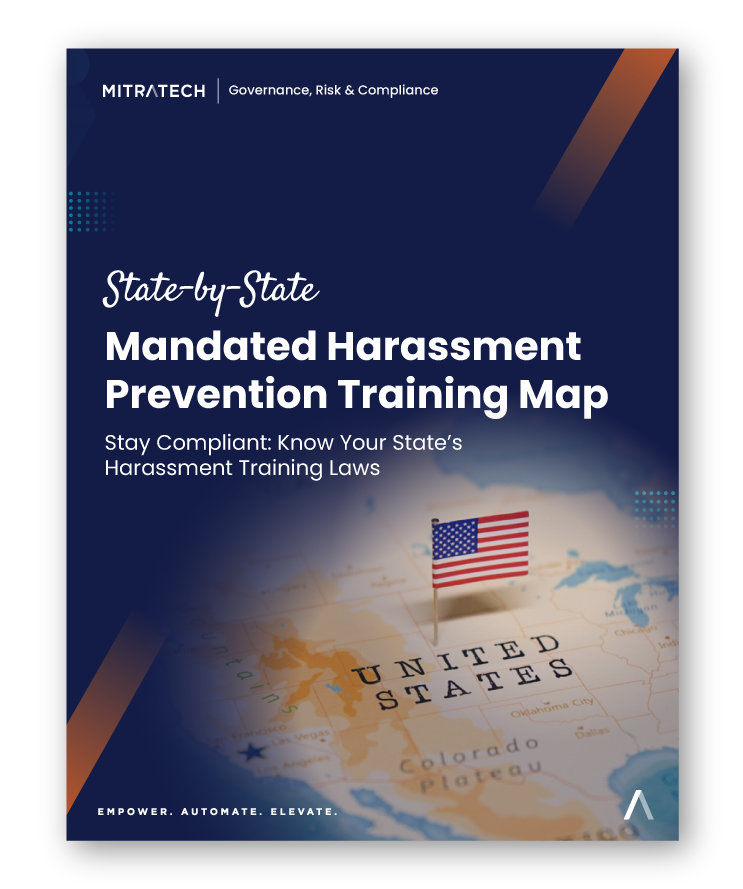Foster better organizational transparency with insights into whistleblowing regulations and safeguards across the globe.
Whistleblowers act as vigilant public advocates, exposing fraud and abuse. According to the Association of Certified Fraud Examiners, 1,921 cases investigated in 2024 resulted in financial losses exceeding $3.1 billion. This staggering figure underscores the vital role whistleblowers play in maintaining corporate integrity and public trust — and when looked at through this lens, protecting them from retaliation becomes even more paramount.
Designed to safeguard these individuals who report illegal or unethical activities, whistleblower protection laws may vary significantly from country to country, As we delve into the complexities of international whistleblower protections, we’ll explore key laws around the world that empower individuals to come forward, ensuring their safety while fostering a culture of transparency and accountability. Whether it’s uncovering corporate fraud or government misconduct, understanding these protections is essential in our collective fight against corruption. Ready to navigate these crucial laws? Let’s dive in.
Whistleblower Protection Laws in the European Landscape
Europe is increasingly bolstering whistleblower protections, with recent regulations aiming to enhance transparency and safeguard those who expose wrongdoing.
The EU Whistleblower Directive
In December 2019, the European Union introduced the Whistleblower Directive to protect individuals who report breaches of EU laws. This directive seeks to safeguard these whistleblowers from retaliation, ensuring that reporting wrongdoing does not result in job loss or discrimination.
By June 2024, all EU Member States had integrated this directive into their local laws, marking a significant step towards a more transparent and accountable Europe.
Key components of the directive include:
- Protection Against Retaliation: Whistleblowers are shielded from dismissal, suspension, demotion, and other forms of discrimination.
- Confidential Reporting Channels: Organizations must establish both internal and external mechanisms enabling whistleblowers to confidentially report breaches of EU law.
- Encouragement of Transparency: By providing these strong protections, the directive fosters a culture of transparency and accountability, enabling the uncovering and addressing of issues that might otherwise remain hidden.
- A Wide Scope: The directive applies to numerous sectors, including financial services, environmental protection, consumer protection, and data privacy. This broad scope ensures that individuals can report and address various kinds of misconduct.
- Support for Whistleblowers: Organizations and authorities must seriously investigate and act upon reports, ensuring they properly address the raised issues.
The German Whistleblower Protection Act
Both the EU Whistleblower Directive and the German Whistleblower Protection Act provide strong protections for whistleblowers, but the German Act goes a step further in certain areas, such as:
- Scope of Application: While the EU Directive applies to a wide range of sectors across all EU member states, the German Act includes specific provisions for occupational health and safety, minimum wage regulations, and other areas not explicitly covered by the EU Directive.
- Reversal of Burden of Proof: The German Act specifically requires the reversal of the burden of proof, a detail not explicitly stated in the EU Directive.
Whistleblower Protection Laws in the North American Landscape
Across North America, legal frameworks for whistleblower protections and anti-fraud initiatives are becoming more rigorous, fostering a safer environment for individuals to report unethical behavior. Initiatives such as the SEC Whistleblower Program and the Corporate Whistleblower Awards Pilot Program have already incentivized whistleblowers to speak up and prompted organizations to invest in internal channels.
The Sarbanes-Oxley Act (SOX) in the United States
The Sarbanes-Oxley Act (SOX), passed in 2002 with strong bipartisan support, stands as a monumental U.S. federal law designed to shield investors from fraudulent financial practices by corporations. The law was a direct response to infamous corporate scandals, which shook public trust and highlighted the urgent need for robust financial governance.
SOX aims to enhance corporate responsibility, ensure accurate financial reporting, and build investor confidence. While it primarily targets publicly traded companies, certain provisions also extend to privately held firms, emphasizing the widespread impact of the Act.
Key components of the directive include:
- Corporate Responsibility: Senior executives must personally certify the accuracy of financial statements, ensuring accountability at the highest level.
- Internal Controls: Companies must establish and maintain robust internal controls over financial reporting, reducing the risk of errors and fraud.
- Audits: Regular, independent audits of financial statements and controls are mandated. According to the ACFE, audit measures can reduce both fraud loss and duration by at least 50%. In fact, out of 18 tested controls, four – surprise audits, financial statement audits, hotlines, and proactive data analysis – are associated with significant reductions in fraud.
- Increased Criminal Penalties: SOX imposes stricter penalties for corporate fraud and tampering with records, deterring malpractice.
- Whistleblower Protection: The Act provides protections for employees who report fraudulent activities, encouraging the disclosure of unethical practices without fear of retaliation.
By mandating rigorous internal controls, independent audits, and stringent penalties for fraudulent activities, SOX significantly mitigates the risks of financial misreporting and corporate misconduct.
Canada’s Public Servants Disclosure Protection Act
The Public Servants Disclosure Protection Act (PSDPA) is a Canadian law for federal public sector employees to report serious wrongdoing. It aims to protect whistleblowers from retaliation and ensure their reports are confidential and thoroughly reported. The PSDPA has some unique features compared to other whistleblower protection laws:
- Specific to the Public Sector: Unlike broader regulations like the U.S. SOX, the PSDPA applies mainly to publicly traded companies.
- Public Sector Integrity Commissioner: The PSDPA establishes an independent Public Sector Integrity Commissioner to investigate disclosures and order corrective actions.
- Tailored Protections: The PSDPA includes strong measures to protect whistleblowers from retaliation, including the ability to seek compensation and disciplinary action against those responsible for reprisals. Other laws, like SOX, also offer protection but may have different mechanisms for enforcement.
Overall, while the PSDPA shares common goals with other whistleblower protection laws, such as protecting whistleblowers and encouraging transparency, while also maintaining specific regulations tailored to the public sector in Canada.
Whistleblower Protection Laws in the Asia-Pacific Region
Asia-Pacific whistleblower regulations and laws emphasize managing corporate and workplace misconduct, unlike the more comprehensive approach taken in Europe and the US, which includes sectors such as financial services, public procurement, and environmental protection.
Australia’s Public Interest Disclosure Act
Australia’s Public Interest Disclosure Act (PIDA) provides federal public sector employees with protections against retaliation when reporting misconduct. It ensures secure and confidential reporting channels through thorough investigations.
- Retaliation Protection: Safeguards whistleblowers from adverse actions.
- Confidential Reporting: Offers secure channels to report misconduct.
- Independent Investigations: The Public Interest Disclosure Commissioner oversees investigations and corrective actions.
Additionally, Australia’s Corporations Act mandates similar protections for corporate whistleblowers, ensuring broader coverage across both public and private sectors.
Japan’s Whistleblower Protection Act
Japan’s Whistleblower Protection Act, updated in 2020, shields current workers, executive officers, and recent retirees from unfavorable treatment for reporting misconduct. Reports can be made internally, to government agencies, or the media. The Act mandates businesses to handle reports confidentially, promoting transparency and accountability to protect citizens and economic growth.
Embracing a Global Culture of Accountability
Navigating the intricacies of international whistleblower protections showcases the shared global commitment to protecting those who speak up against wrongdoing. These laws collectively underscore the importance of keeping whistleblowers safe, providing them with secure and confidential reporting channels, and ensuring they are protected from retaliation.
As we continue to see evolving trends and enhancements in whistleblower protections, it becomes clear that the global effort to uphold ethical standards is stronger than ever. By embracing these regulations, we can ensure a more transparent and accountable future, where whistleblowers play a pivotal role in maintaining trust and integrity within our organizations.
Want to continue the conversation on how to protect your employees from retaliation and create a culture of enhanced transparency and accountability. Please get in touch with our team today.




